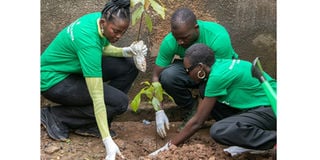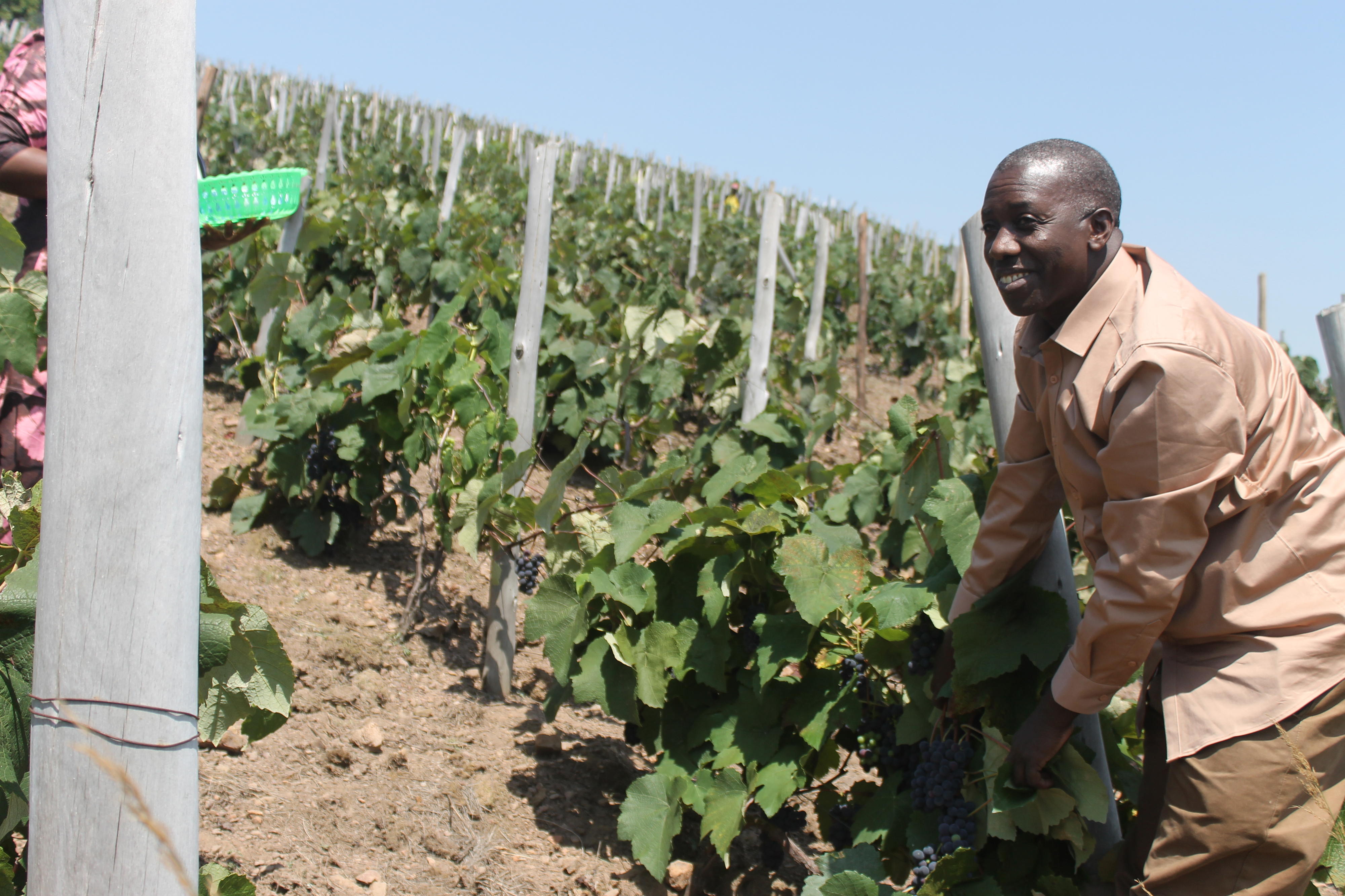Prime
Youth grow fruit trees to fight climate change

Model Aamito Lagum has added her voice to the tree-planting campaign in urban areas. Photo | Esther Bridget Nakalya
What you need to know:
- The team jointly contributes to the development of urban slum communities of Kakajo Zone 1 in Kisenyi, Kampala Central Division through tree planting and hygiene practices.
A youth activism group under the Act Africa Now initiative realised a way to add value to slum communities around Kampala city suburbs.
The team jointly contributes to the development of urban slum communities of Kakajo Zone 1 in Kisenyi, Kampala Central Division through tree planting and hygiene practices.
“We managed to plant 350 trees and issued out about 2000 to the urban slum communities. This is aligned with our vision to see Uganda green,” says Mr Oscar Senyonga, the founder of the group.
The movement, he emphasises is under the Mambia Arts Foundation and is aligned towards environmental conservation and sustainability.
The team of volunteers digs up drainage pits and offers seedlings and trees to these communities on top of giving basic training on conservative environmental methods.
Motive
The foundation, he explains, recognises the increased urbanisation causing a hike in urban slum settlements which exposes the population to several health risks.
“Slums having cheaper accommodation are highly congested and make the environment prone to unhygienic conditions such as poor waste disposal, unclean water and toilets.”
Senyonga believes this tree planting and environmental conservation campaign will awaken the public on issues such as global warming, climate change and sensitisation about environmental diseases.
He notes; “This initiative is for the betterment of our environment. We are doing education sensitisation in the slum communities of Kakajo 2, and other 15 neighbouring zones through public address messages, t-shirts, posters and reflectors.”
Situational analysis
Currently, there is a growing interest in growing different tree species in the country. Different stakeholders are embracing tree planting initiatives for a sustainable environment.
Last year, the Ministry of Water and Environment put up a tree planting campaign in districts of Koboko, Apac and Otuke, among others, to reinforce the National Forestry and Tree Planting Act of 2003 which makes tree planting compulsory at household level.
To underscore the necessity of tree planting in our communities, Ms Aamito Lagum, an American model and climate change activist encourages these communities to be proactive in creating a sustainable environment.
She says; “We should all act now, and use our platforms to be a voice for change. If we want to tell people about a clean and green environment, we must as well start from home.”
To commence the four-day youth movement in promoting environmental conservation under the theme, “Making Uganda green again” Ms Lagu planted some fruit trees in the community of Kakajo.
Challenges
Mr Senyonga reveals how the work dynamics around slum settlements decelerate progress and calls upon all stakeholders to scale up environmental campaigns.
“In some communities, we are identified as a political group which retards community involvement. Volunteers also have a profound fear to work in ghettos rising from their concerns on insecurity and filth,” he shares.
Solutions
The tree planting campaign is effective in enhancing great climate patterns which is of great value in addition to better environmental conditions and productive yields in farming.
Ms Jalia Namiiro, the village vice chairperson at Kakajo Zone 1 applauds the movement’s initiative.
She says; “Before, we struggled with waste collection as there were delays in collection of waste by garbage trucks. However, with this initiative, we are able to be vigilant with our hygiene practices.”
Mandatory
Currently, there is a growing interest in growing different tree species in the country. Different stakeholders are embracing tree planting initiatives for a sustainable environment. Last year, the Ministry of Water and Environment put up a tree planting campaign in districts of Koboko, Apac and Otuke, among others, to reinforce the National Forestry and Tree Planting Act of 2003 which makes tree planting compulsory at household level.





